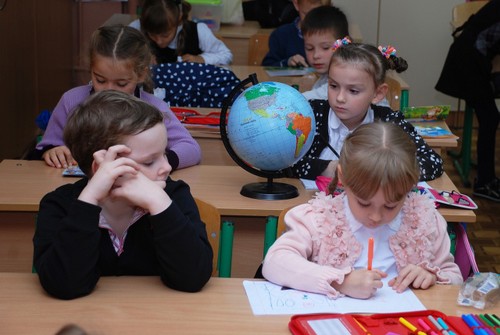FORMS AND CAUSES OF DYSLEXIA
Published by john@teachers-zone.com in Dyslexia · 6 February 2015
Tags: special_needs, methodology, articles
Tags: special_needs, methodology, articles
I have been interested in teaching students with special needs since I started to be a teacher. Nowadays, about 10% of students have specific learning disabilities that should be taken into considaration during organisation of teaching process. They are not all the same, they have to cope with different difficulties - with reading (dyslexia), handwriting (dysgraphia), spelling (dysortographia), counting (dyscalculia), music (dysmusia) or mixed disorder of scholastic skills.

It will be presented here some forms and causes of dyslexia:
1. Auditory dyslexia
It is a retarded ability to discern differences between similar phonemic letters, like k/g, t/d, p/b. Students have difficuties with articulation of all phonemes in complex words or with connecting sounds to printed letters. They cannot see differences between minimal pairs (e.g. cut/cat, foot/food, aunt/ant). It is almost impossible for them to recognize and produce rhymes. Therefore, appears that learning pronunciation by imitation is hindered.
2. Visual dyslexia
Children have difficulties with directionality, symbol reading and spelling words. They have also problems with fluent reading, they can skip endings and small words. Main mistakes are:
- phonic writing (e.g. cheese / “cziz”; book / buk),
- mirrored writing (b/d; p/g),
- letters replaced by similar ones (w/m/n; p/b/g/d),
- letters written in the wrong order, omitted or added (e.g. mouse / “muose”; chess / “ches”; shop/“schop”).
3. Audiovisual dyslexia
It combains problems of auditiry and visual dyslexia.
4. Emotional dyslexia
Dyslexic students have usually experienced many school defeats. Therefore, they may feel anxiety and be discouraged. They may also become prejudiced against school subjects that they find difficult and what is more these students have low self-esteem and motivation for learning. That is why they cannot enjoy learning or refuse to go to school. Due to frustration, there may appear some behaviour problems, such as passivity (a withdrawn student), aggression and tantrums as a form of protest or a student becomes a classroom “clown”.
Students can try to hide the faulty reading bi skimming or guessing the text. They have problems with correct pronunciation.
5. Pedagogical dyslexia.
It is usually a result of bad teaching.
There are no reviews yet.
